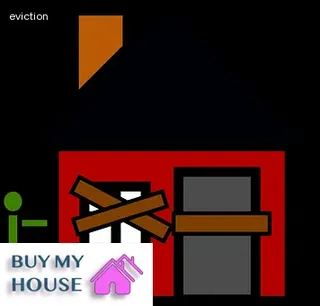Understanding the rules and procedures of eviction in Mississippi is essential for landlords and property managers to maximize their rights while protecting their tenants. The entire eviction process varies in length, depending on the county in which the rental property is located, as well as the type of notice served by the landlord.
In general, a tenant has seven days to pay rent or vacate the premises after receiving an unconditional notice to quit. If they do not comply, then a landlord can file an eviction lawsuit with their local court clerk.
Once this is done, a summons will be issued to both parties notifying them of a hearing date before a judge. During this hearing, both sides can present evidence and witnesses before a decision is made.
If the tenant loses in court then they have up to 10 days to appeal or move out; if they fail to do so, then the sheriff can come onto the property to forcibly remove them. It's important for landlords and property managers in Mississippi to stay aware of all applicable laws and regulations when it comes to evicting tenants.

Terminating a residential lease agreement is a serious matter and should not be done lightly. In Mississippi, the landlord or property manager has the right to end the lease if the tenant violates any of the terms of their contract, such as by failing to pay rent on time or by damaging the property.
The landlord can also terminate the agreement if they need to make necessary repairs or renovations that cannot be done with the tenant still in residence. Additionally, a landlord may choose to end an agreement if they wish to sell or otherwise use the property for other purposes.
It’s important to remember that landlords must provide tenants with written notice of their decision to terminate and must follow all applicable laws when doing so.
Tenants in Mississippi have certain rights during an eviction process that landlords and property managers must adhere to. A tenant may not be evicted without a valid court order issued by a judge, and the landlord has no right to change the locks or remove any of the tenant’s belongings from the property.
The landlord must provide written notice to the tenant of their intention to file for eviction at least seven days prior to filing with the court. In addition, if the court rules in favor of the landlord, they can only recover possession of their rental unit after a writ of restitution is issued.
During this time, tenants have a right to stay in their home unless they voluntarily vacate before the writ is issued. Tenants also have a right to due process in court and should be provided with necessary information regarding their case before it goes to trial.
Finally, tenants cannot be charged late fees or additional rent during an eviction proceeding and any requests for payment must be made through the court system.

In Mississippi, the process of evicting a tenant is regulated by state law and requires adherence to a set of specific rules. Generally, an eviction process must begin with a landlord issuing a written notice to the tenant that outlines the reason for the possible eviction.
The landlord is then required to file a complaint in court and receive a writ of possession from the court before proceeding with an eviction. The tenant is then given seven days to vacate or face removal by law enforcement.
Furthermore, it is illegal in Mississippi for landlords or property managers to attempt to remove tenants without going through this legal process first. It is also illegal to change locks, cut off utilities, or harass tenants in any way as part of an eviction process.
All landlords and property managers must abide by these laws when attempting evictions on their properties in order to ensure fair treatment of all parties involved and maintain compliance with state law.
The eviction process in Mississippi is a complex one, and there are certain steps that must be followed to ensure the process is carried out correctly. Generally speaking, the timeline for an eviction process in Mississippi can vary depending on the type of case and the county where it's being filed.
The first step is typically for the landlord to give written notice to the tenant, which must include details about why the tenant is being evicted and how much time they have to move out. After this notice has been sent, if the tenant does not voluntarily leave then the landlord must file an official complaint with a local court.
If this happens, then a hearing will be scheduled in which both parties can present their cases before a judge makes a ruling on whether or not an eviction should occur. Once this decision has been made, if it's in favor of the landlord then they can proceed with having a writ of possession issued by the court and served to the tenant.
This document officially states that they must vacate the property within 24 hours or face further legal action. If necessary, law enforcement may be called upon to help enforce this order.
After all these steps have been taken, only then can an eviction be finalized and enforced.

The financial implications of an eviction in Mississippi can be far-reaching and difficult to overcome. Evictions are expensive for landlords, as they must cover court costs and lawyer fees in order to proceed with the process.
In addition, a tenant being evicted may have to pay for their own legal representation if they choose to fight the eviction. Once an eviction has been finalized, it's likely that the tenant will owe back rent and late fees, which can add up quickly depending on how long the process took.
This debt is usually reported to credit agencies and can affect a person’s ability to rent from another landlord down the line. Furthermore, tenants who are evicted will also have difficulty finding affordable housing due to their poor rental history, leading them into a downward spiral of financial instability.
One of the most common questions about eviction in Mississippi is how long it takes to complete the process. Generally, the timeline of an eviction depends on a few factors, such as whether or not the tenant responds to the eviction notice, what type of eviction notice is being served, and if there are any court hearings.
Landlords and property managers should understand their rights during an eviction and know what type of documentation they must provide to the court. In many cases, the tenant has seven days to respond to an eviction notice; however, if they fail to do so, then the landlord may file with their local court for an expedited hearing.
If a hearing is necessary, this can add extra weeks or even months to the process. Additionally, landlords should be aware that if a tenant initiates a counter-claim against them in response to an eviction notice then it could further delay matters.

Evictions are a difficult process for landlords and tenants alike, and the process varies across different states. In Mississippi, the eviction process can take anywhere from a few days to several months depending on factors such as the landlord-tenant relationship and legal requirements.
Before initiating an eviction action in Mississippi, landlords must ensure that they are compliant with all state regulations regarding tenant rights and landlord responsibilities. These include providing proper notice of lease termination as well as following proper legal filing protocols.
Additionally, landlords must be aware of their rights to collect rent payments or pursue an eviction action after the lease is terminated. Comparatively, other states have similar rules regarding eviction notices and filing requirements; however, processing times may vary depending on local statutes or court backlogs.
Ultimately, understanding the laws of one's jurisdiction is paramount to successfully navigating any eviction process in the US.
In Mississippi, the length of an eviction process may be extended for a variety of reasons. The state's landlord-tenant laws provide protection for tenants, as well as rights for property owners and landlords.
If a tenant has failed to pay their rent, the landlord is required to issue a written notice that specifies the amount due and provides at least 14 days from the date of service for the tenant to pay their rent or vacate. If after those 14 days the tenant has failed to pay or vacate, then the landlord can commence legal proceedings in court.
Factors that can prolong an eviction include when tenants contest an eviction in court or if they file bankruptcy protection which can delay proceedings or stop them altogether. Additionally, if there is any type of maintenance issue that needs to be addressed before a unit can be rented out again, this will also extend the timeline of an eviction process.
It's important for both landlords and tenants to understand their rights and obligations under Mississippi law in order to avoid delays or complications during an eviction process.

When landlords and property managers in Mississippi are faced with the need to evict a tenant, they must understand that the legal process can be lengthy and complex. Having a knowledgeable attorney on hand is essential to ensure that the rights of both parties are respected throughout the eviction process.
An experienced lawyer can help guide their client through court proceedings, provide advice on best practices for eviction notices, and advise on any other legal matters that may arise. In addition, they can assess current Mississippi laws regarding landlord-tenant rights and ensure that both parties are adhering to them.
Furthermore, should either party choose to pursue legal action, an attorney can present all relevant evidence in court and represent their client’s interests before a judge. Legal representation during an eviction is invaluable in ensuring that the process runs smoothly and that all parties adhere to their rights as provided by law.
In Mississippi, the landlord-tenant relationship is regulated by state law. The Mississippi Residential Landlord Tenant Act applies to residential leases and sets out the legal rights and obligations of both the landlord and tenant.
The Act covers topics such as security deposits, lease terms, rent increases, repairs and maintenance, evictions, and more. Additionally, landlords must comply with local ordinances such as health and safety codes.
Tenants also have the right to withhold rent if a landlord fails to perform their duties under the Act or applicable local laws. In terms of eviction proceedings, landlords must provide written notice before filing for eviction in court and must follow all appropriate legal processes for evicting a tenant from a rental property.
It is important to note that certain time periods are required by law between serving an eviction notice and when a court order can be issued. Understanding these rules can help landlords protect their rights while avoiding costly delays in the eviction process.

Eviction proceedings can be a stressful and costly endeavor, so it is important to take preventative measures to avoid unnecessary evictions. In the state of Mississippi, landlords and property owners must follow specific rules and regulations when evicting a tenant.
By taking the time to understand what rights they have as landlords or property managers and how long the eviction process may take, they can prevent lengthy legal battles. Landlords should ensure that their leases are up-to-date with all relevant laws, including an agreement on payments that outlines late fees and any other required payments; this will help avoid issues such as rent being paid late or not at all.
Additionally, it is important to properly document any conversations and interactions with tenants in case there are disputes down the line. Before proceeding with an eviction, make sure you know all of your rights as a landlord or property manager in Mississippi - as well as what is expected of you - so that you can take the necessary steps to protect yourself and your interests.
In Mississippi, alternative options to eviction are available for both landlords and property managers. Before initiating the eviction process, landlords and property managers should consider if any of these alternatives would be a more suitable solution for the situation.
One alternative option is to offer the tenant an extension on their rent payment. This could take the form of an extended payment plan or working out a mutually-agreed upon solution that would allow the tenant to pay off their overdue rent.
Another potential alternative is to negotiate a partial payment with the tenant, allowing them to stay while they work towards paying off their debt in instalments. Finally, landlords and property managers can also consider offering an early lease termination agreement in lieu of eviction proceedings.
This type of agreement allows tenants to move out before the end of their lease term in exchange for waiving all or part of their unpaid rent balance. Ultimately, it is important for landlords and property managers to be aware of all possible alternatives to eviction when addressing rental issues in Mississippi.

The consequences of breaking a lease agreement in Mississippi can be severe for both landlords and tenants. If a tenant fails to meet the rental agreement, the landlord may take legal action which could include filing an eviction lawsuit with the court.
This process can take anywhere from several weeks to several months depending on the time it takes for a judge to hear the case and make a decision. During this time, the landlord will likely have to pay legal fees and administrative costs while they wait for their tenant to either comply or leave.
On the other hand, if a tenant is found guilty of breaking their lease agreement, they could be responsible for paying any back rent due as well as any damages that resulted from violating the contract. Additionally, they may need to pay court costs, attorney's fees, and even end up with an eviction on their record which can make it difficult to find housing in the future.
In Mississippi, tenants and landlords must understand their rights and responsibilities in order to determine whether an illegal eviction has occurred. Landlords are required to follow specific processes when evicting a tenant, so if the rules have not been followed then it can be considered an illegal eviction.
It is important to be aware of what constitutes an illegal eviction in Mississippi which includes things like terminating a lease without notice or failing to provide proper court documentation. In addition, landlords should be aware of what rights they have when it comes to evicting tenants such as giving notice and abiding by the amount of time given for relocation.
Knowing these rights and rules can help both parties determine whether an illegal eviction has taken place in Mississippi.

Navigating the eviction process in Mississippi can be a daunting task, especially when trying to understand landlord-tenant regulations and rights. Fortunately, there are many available resources to assist both landlords and tenants in dealing with disputes.
With assistance from local government organizations, legal professionals, and rental housing advocacy groups, landlords and tenants can gain a better understanding of their rights during an eviction proceeding. Additionally, it is important for both parties to familiarize themselves with the laws that govern landlord-tenant relationships within the state of Mississippi.
Knowing the applicable laws can help protect each party’s rights while also providing clarity on how long an eviction process may take. Resources such as the Landlord Tenant Handbook published by the Mississippi Department of Human Services are invaluable tools that provide detailed guidance on all aspects of landlord-tenant disputes including eviction proceedings.
By exploring these available resources, landlords and tenants can make informed decisions regarding their rights during an eviction process in Mississippi.
In Mississippi, the eviction process can be a lengthy and complex one. A successful resolution to landlord-tenant conflict begins with understanding the rules and rights of both parties.
Property managers should be aware of their legal responsibilities and limits when dealing with tenant disputes. Landlords should take steps to ensure that they are in compliance with all applicable laws, such as providing proper notice prior to evicting a tenant.
Additionally, both landlords and tenants should make use of alternative dispute resolution methods such as mediation or arbitration when disputes arise. Communication is key, so it is important for both parties to keep lines of communication open throughout the process; this will help to create an atmosphere of mutual respect and understanding that can lead to a successful resolution of the situation.
By following these strategies, landlords and tenants can work together to achieve a favorable outcome in any eviction process in Mississippi.
Eviction can be a lengthy process in Mississippi, and the exact amount of time it takes to evict a tenant depends on the specific circumstances. Generally, an eviction case can take anywhere from two weeks to several months or longer.
Landlords must follow certain regulations that dictate the steps they must take as part of eviction procedures. It is important for landlords to understand their rights and responsibilities when navigating the eviction process in Mississippi.
The most common step in an eviction is serving notice to the tenant, which typically gives them three days to either pay rent or vacate the property. If they do not comply with this notice, landlords are then able to file an unlawful detainer lawsuit against their tenants in court.
This begins a more formal legal process which may involve hearings and orders from a judge before ultimately ending with the tenant being evicted. Throughout all these steps, landlords must ensure they are adhering to all state laws regarding evictions, such as providing proper notice and filing documents correctly in court.
Doing so will help ensure that no unnecessary delays occur during the eviction process.

At a time when many Americans are facing economic hardship due to the COVID-19 pandemic, understanding eviction laws in Mississippi is of paramount importance. Can landlords evict tenants at this time in Mississippi? The answer is yes, they can; however, there are certain rules and regulations that need to be followed.
In order to legally evict a tenant, landlords must adhere to the Mississippi Landlord & Property Manager Rules & Rights as outlined by state law. The eviction process typically begins with the landlord sending a written notice of non-payment or breach of contract to the tenant.
If the tenant does not respond within a period of time (this will vary based on the terms of the lease agreement), then the landlord may file an eviction action with the court. From there, it can take anywhere from a few weeks up to several months for an eviction process to be completed in Mississippi, depending on how quickly each step of the process moves forward.
It's important for both landlords and tenants alike to familiarize themselves with their rights and responsibilities under state law in order to protect their interests during an eviction.
An eviction on your record in Mississippi can remain for years, depending on the severity of the case. Generally, an eviction from a landlord or property manager will stay on your record for at least 7 years.
If an eviction is contested, it may stay on your record indefinitely until a court decides to remove it. Additionally, even if an eviction is dismissed by a court, it may still remain on your credit report and public records for 7 years or more.
To make sure that an eviction doesn’t continue to haunt you long after you have moved out of the property, it’s important to know how long an eviction stays on your record near Mississippi and what steps you can take to remove it.
A 3 day notice to quit Mississippi is a legal document served by a landlord to a tenant that informs the tenant that they must vacate the rental property within 3 days. This document is usually filed as part of an eviction process and is required in order for the landlord to legally evict the tenant from the premises.
The notice must be in writing and include specific language that states that if the tenant does not vacate within 3 days, then the landlord will initiate court proceedings against them. The 3 day notice should also provide information on how the tenant can pay outstanding rent or make other arrangements with their landlord so they do not have to leave.
It is important for landlords and property managers to understand their rights and responsibilities when it comes to serving a 3 day notice, as failure to do so properly may disrupt or delay an eviction process in Mississippi.